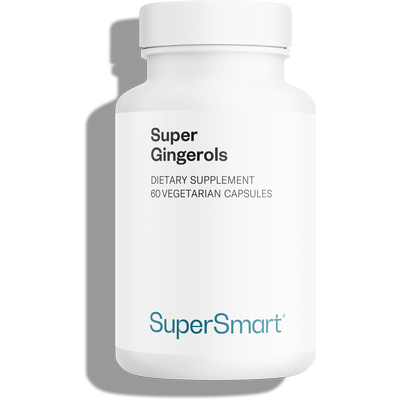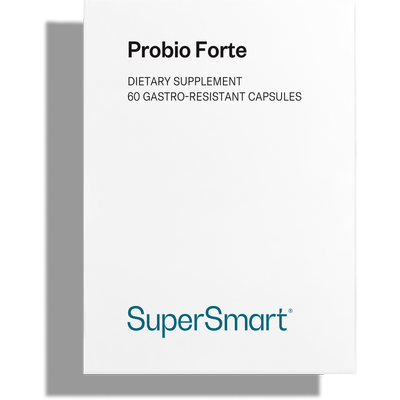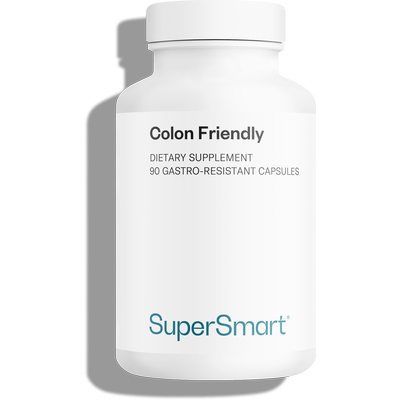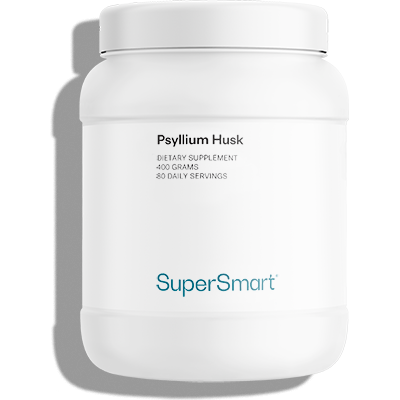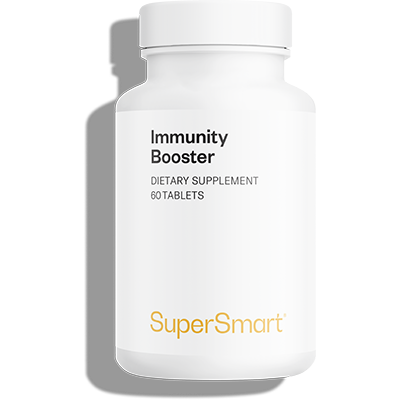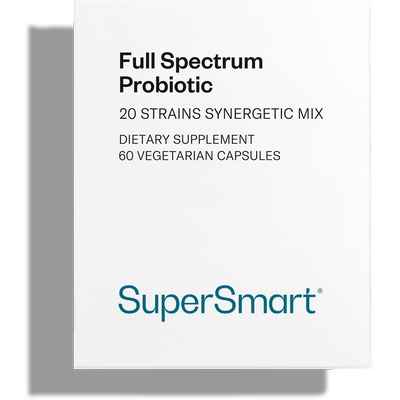What should you eat if you have gastroenteritis?
Usually triggered by a virus or bacteria, gastroenteritis is inflammation of the digestive mucosa which causes diarrhoea and vomiting. Discover what to eat to feel better when you’re suffering from this complaint.

Gastroenteritis: inflammation due to various causes
Defining elements
Gastroenteritis is inflammation of the lining of the digestive tract. It causes diarrhoea which may be accompanied by nausea and/or vomiting, abdominal pain, moderate fever, and sometimes, blood in the stools.
This general description actually covers several forms of gastroenteritis (1):
- viral gastroenteritis , usually caused by a rotavirus or adenovirus. Being viral, it is highly contagious, and is usually seasonal, occurring mainly in winter.
- bacterial gastroenteritis , usually caused by the bacterial strains Escherichia coli, Salmonella enterica or Shigella dysenteriae. The latter is the result of poor hygiene (for example, low standards of cleanliness among restaurant staff).
- parasitic gastroenteritis, caused by an intestinal parasite (Giardia) or amoeba.
Gastroenteritis: how is it treated?
- generally speaking, viral gastroenteritis is not treated, except for providing symptom relief;
- as antibiotics can also cause diarrhoea, they are not usually prescribed for gastroenteritis, except when the infection is caused by specific bacteria;
- however, parasitic gastroenteritis is treated, with special anti-parasitic drugs.
Gastroenteritis: is it better to eat or fast?
The initial reflex when suffering from a gastrointestinal disorder is to fast. But that’s the wrong approach: it’s crucial to carry on eating when you have gastroenteritis.
Eating actually helps the lining of the gut to heal and provides the body with the macronutrients and micronutrients it needs to combat the condition and regain strength.
That doesn’t mean, however, that you should eat huge meals. It’s much better to eat small, light meals, and frequently.
It’s also important to stay very well hydrated to prevent the dehydration that diarrhoea and vomiting can cause.
Gastroenteritis: what should you drink?
What should you drink in the case of vomiting and gastroenteritis?
If the gastroenteritis is making you vomit, it’s best to stick to water, sweetened perhaps, with a little honey. Herbal or green teas are also good options as they offer the benefits of the plants from which they’re made, while light, fat-free broths contain valuable minerals and vitamins.
Conversely, it’s important to avoid:
- citrus fruit juices as they will acidify the stomach and make things worse, even damaging the lining of the stomach;
- caffeine, which may encourage diarrhoea (so no standard tea or coffee);
- sugary drinks;
- alcohol;
- fizzy drinks;
What should you eat if you have gastroenteritis-induced diarrhoea?
Generally speaking, starches are the best choice when you’re suffering from gastroenteritis and diarrhoea.
Rice, pasta, carrots, potatoes, etc. provide the body with calories and thus energy, and can form a kind of protective ‘plaster’ for the lining of the digestive system.
You can also eat eggs, fish and lean meat (such as turkey) to provide your body with sufficient protein.
On the other hand, you should avoid eating fibre - so no lentils (or pulses in general), wholegrain rice, etc, and no non-starchy vegetables, at least while you wait for symptoms to ease.
What should you eat for gastroenteritis-related vomiting?
The same guidelines apply in the case of vomiting, but make sure you reduce the amount you eat and increase the frequency.
The key is to avoid overloading an already-fragile stomach too soon. But it’s still important to eat so that you’re not just vomiting bile, which is not only painful but can also cause other inflammation, especially of the oesophagus and oral mucosa.
Are there any fruits you can eat when suffering from gastroenteritis?
Generally speaking, fruit is too acidic and high in fibre to be eaten when you have gastroenteritis.
The exception is raw banana which is actually beneficial as it provides numerous vitamins (C, E, B6, B9 and provitamin A) and is also a starch. Stewed apples may also help.
What about yogurt?
If they are lactose-free, or you have no problem tolerating lactose, you can eat low-fat yogurts; they actually provide lactic bacteria which are good for the gut microbiota, like probiotics (2).
What dietary supplements can you take to support intestinal health?
Always seek advice from your doctor before taking any medication or supplements in this context.
It’s worth noting that in North Africa, they have a traditional remedy for relieving vomiting: a teaspoon of cumin powder, a use that’s been well-studied (3)…
ginger is also known for its anti-nausea effects, recognised by the WHO. You can take it in the form of ginger extract capsules, such as the supplement Super Gingerols (4).
Once the main symptoms have disappeared, it’s a particularly good time to start a course of probiotics to help restore your gut microbiota to a normal state. There are a number of comprehensive probiotic formulations available for this.
You could, for example, choose from Probio Forte, Colon Friendly (especially popular with IBS-sufferers) or Full Spectrum Probiotic Formula (which contains no less than 20 different strains of microorganism) (5).
Psyllium may also be of benefit in reducing diarrhoea. It helps to firm up stools as its mucilage absorbs water from the gut. But be sure to take it with plenty of water, especially in the case of gastroenteritis (to avoid becoming dehydrated).
Last but not least, it’s a good idea to give regular consideration during the year to supporting your immunity against pathogens, with targeted supplements (such as Immunity Booster).
SUPERSMART ADVICE
References
- https://www.msdmanuals.com/fr/professional/troubles-gastro-intestinaux/gastro-ent%C3%A9rites/gastro-ent%C3%A9rites
- SZAJEWSKA, Hania, GUARINO, Alfredo, HOJSAK, Iva, et al.Use of probiotics for management of acute gastroenteritis: a position paper by the ESPGHAN Working Group for Probiotics and Prebiotics. Journal of pediatric gastroenterology and nutrition, 2014, vol. 58, no 4, p. 531-539.
- AGAH, Shahram, TALEB, Amir Mehdi, MOEINI, Reyhane, et al.Cumin extract for symptom control in patients with irritable bowel syndrome: a case series. Middle East journal of digestive diseases, 2013, vol. 5, no 4, p. 217.
- Ernst E, Pittler MH. Efficacy of ginger for nausea and vomiting: a systematic review of randomized clinical trials. Br J Anaesth. 2000 Mar;84(3):367-71. doi: 10.1093/oxfordjournals.bja.a013442. PMID: 10793599.
- ANSARI, Fereshteh, PASHAZADEH, Fariba, NOUROLLAHI, Elaheh, et al.A systematic review and meta-analysis: the effectiveness of probiotics for viral gastroenteritis. Current pharmaceutical biotechnology, 2020, vol. 21, no 11, p. 1042-1051.
Keywords
3 Days
Good quality product and customer service.
So far, I'm liking this product, and the customer service was very good.
ELZL
10 Days
The products I use are excel·lent
The products I use are excel·lent
ROSAS Josep Maria
18 Days
Delivery is prompt and I never saw a…
Delivery is prompt and I never saw a quality problem with the manufacturing. It is not possible to assess efficacy on a personal basis, since too many factors come into play. Efficacy can only be assessed statistically with a sufficient number of cases.
Roger De Backer
19 Days
I collaborates with the Supersmart…
I collaborates with the Supersmart more than 10 years. Every thing is going good. Quality of the things is good. Delivery comes in time. Five stars definitely !!!
Oleksiy
19 Days
All good
Simple, frictionless site, easy ordering, good delivery updates and execution.
Chris Robbins
21 Days
I feel better
I feel better
Peter Ammann
22 Days
Prompt delivery
Prompt delivery
JAKUB Radisch
23 Days
My new go-to for top quality supplements!
I am buying more and more of my supplements from this superb, high quality company. Cannot recommend it enough. Plus, excellent customer service with a quick, helpful team and speedy deliveries. Highly recommend Supersmart!
Cecilie H.
26 Days
SUPERSMART WHAT ELSE👍
SUPERSMART WHAT ELSE👍
DIEDERLE Christophe
29 Days
Excellent quality products with…
Excellent quality products with innovative formulas, as someone who has been suffering with acid reflux, these supplements have been lifesavers.
Oriana Moniz
29 Days
high quality supplement!
high quality supplement!
GALANT
30 Days
Good service prompt delivery
Good service prompt delivery
Mrs Marcella Reeves
35 Days
I like your clear explanation
I like your clear explanation. And how to make a choice of products for a specific health problem
Ingrid
41 Days
Great product and it arrives quickly.
Great product and it arrives quickly.
SOMMARIVA Gianni
42 Days
Excellent products and fast service.
Excellent products and fast service. What do we need more?
Margarida

